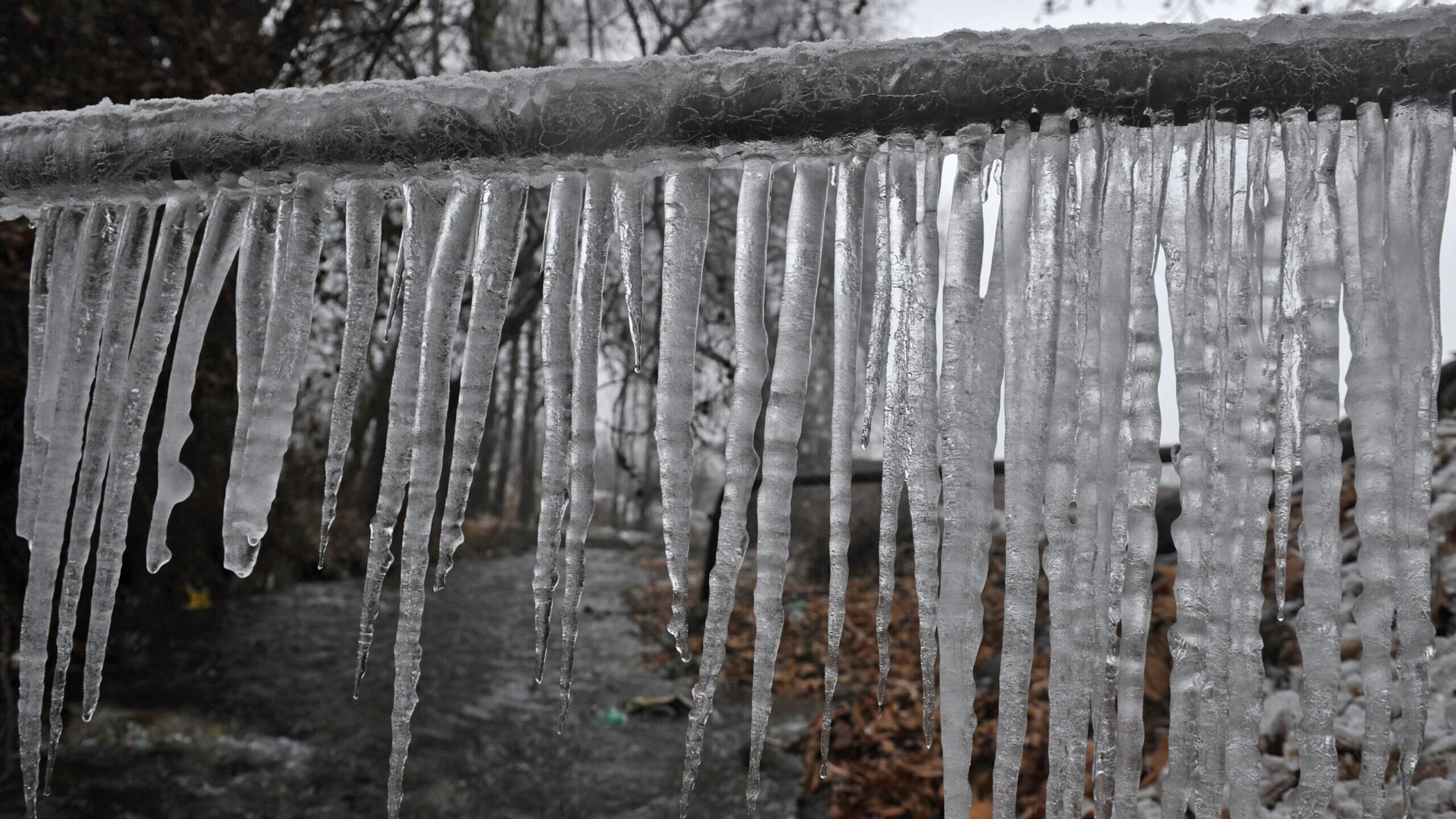Protecting Against Frozen Plumbing: Best Strategies for Cold Weather
Protecting Against Frozen Plumbing: Best Strategies for Cold Weather
Blog Article
Were you trying to find critical info involving Winter Plumbing Precautions: Preventing Frozen Pipes?

Cold weather can wreak havoc on your pipes, especially by freezing pipelines. Below's how to avoid it from happening and what to do if it does.
Introduction
As temperature levels decline, the threat of icy pipelines rises, possibly bring about costly repairs and water damage. Understanding how to stop icy pipelines is vital for house owners in cold climates.
Prevention Tips
Insulating prone pipelines
Wrap pipes in insulation sleeves or utilize warm tape to secure them from freezing temperature levels. Concentrate on pipes in unheated or exterior locations of the home.
Heating strategies
Keep indoor areas sufficiently warmed, particularly locations with plumbing. Open up cabinet doors to enable cozy air to circulate around pipelines under sinks.
How to determine icy pipelines
Search for lowered water circulation from faucets, unusual smells or sounds from pipelines, and visible frost on subjected pipelines.
Long-Term Solutions
Architectural adjustments
Consider rerouting pipes away from exterior wall surfaces or unheated locations. Include additional insulation to attic rooms, cellars, and crawl spaces.
Upgrading insulation
Invest in premium insulation for pipes, attics, and walls. Proper insulation helps preserve constant temperatures and minimizes the risk of icy pipelines.
Securing Outdoor Plumbing
Garden hoses and exterior faucets
Disconnect and drain pipes garden pipes before winter. Set up frost-proof faucets or cover outdoor taps with shielded caps.
Understanding Icy Pipelines
What causes pipes to ice up?
Pipelines ice up when subjected to temperature levels below 32 ° F (0 ° C) for prolonged durations. As water inside the pipelines ices up, it broadens, putting pressure on the pipeline walls and potentially causing them to break.
Risks and problems
Icy pipelines can lead to water system disruptions, building damages, and expensive repair services. Ruptured pipelines can flooding homes and create considerable structural damage.
Signs of Frozen Pipeline
Identifying frozen pipelines early can stop them from breaking.
What to Do If Your Pipelines Freeze
Immediate actions to take
If you think frozen pipes, maintain taps available to ease stress as the ice thaws. Utilize a hairdryer or towels soaked in warm water to thaw pipelines slowly.
Conclusion
Preventing icy pipes calls for aggressive actions and quick actions. By comprehending the causes, indications, and safety nets, property owners can shield their plumbing during winter.
Helpful Tips to Prevent Frozen Pipes this Winter
UNDERSTANDING THE BASICS: WHY PIPES FREEZE AND WHY IT’S A PROBLEM
Water freezing inside pipes is common during the winter months, but understanding why pipes freeze, and the potential problems it can cause is crucial in preventing such incidents. This section will delve into the basics of why pipes freeze and the associated problems that may arise.
THE SCIENCE BEHIND FROZEN PIPES
When water reaches freezing temperatures, it undergoes a physical transformation and solidifies into ice. This expansion of water as it freezes is the primary reason pipes can burst. As the water inside the pipe freezes, it expands, creating immense pressure on the walls. If the pressure becomes too great, the pipe can crack or rupture, leading to leaks and water damage.
FACTORS THAT CONTRIBUTE TO PIPE FREEZING
Low Temperatures: Extremely cold weather, especially below freezing, increases the risk of pipes freezing. Uninsulated or Poorly Insulated Pipes: Pipes located in unheated areas, such as basements, crawl spaces, or attics, are more prone to freezing. Insufficient insulation or lack of insulation altogether exacerbates the problem. Exterior Wall Exposure: Pipes running along exterior walls are susceptible to freezing as they encounter colder temperatures outside. Lack of Heating or Temperature Regulation: Inadequate heating or inconsistent temperature control in your home can contribute to frozen pipes. PROBLEMS CAUSED BY FROZEN PIPES
- Pipe Bursting: As mentioned earlier, the expansion of water as it freezes can cause pipes to burst, resulting in significant water damage.
- Water Damage: When pipes burst, it can lead to flooding and water damage to your property, including walls, ceilings, flooring, and personal belongings.
- Structural Damage: Prolonged exposure to water from burst pipes can compromise the structural integrity of your home, leading to costly repairs.
- Mold and Mildew Growth: Excess moisture from water damage can create a favorable environment for mold and mildew growth, posing health risks to occupants.
- Disrupted Water Supply: Frozen pipes can also result in a complete or partial loss of water supply until the issue is resolved.
WHY CERTAIN PIPES ARE MORE PRONE TO FREEZING
- Location: Pipes located in unheated or poorly insulated areas, such as basements, crawl spaces, attics, or exterior walls, are at higher risk of freezing.
- Exterior Pipes: Outdoor pipes, such as those used for irrigation or exposed plumbing, are particularly vulnerable to freezing as they are directly exposed to the elements.
- Supply Lines: Pipes that carry water from the main water supply into your home, including the main water line, are critical to protect as freezing in these lines can affect your entire plumbing system.
- Underground Pipes: Pipes buried underground, such as those connected to sprinkler systems or outdoor faucets, can be susceptible to freezing if not properly insulated.
https://busybusy.com/blog/helpful-tips-to-prevent-frozen-pipes-this-winter/

I'm certainly very drawn to How to Prevent Your Pipes From Freezing and I really hope you enjoyed the entire blog post. If you please take a moment to share this blog entry if you enjoyed reading it. I treasure your readership.
Customer Reviews Report this page